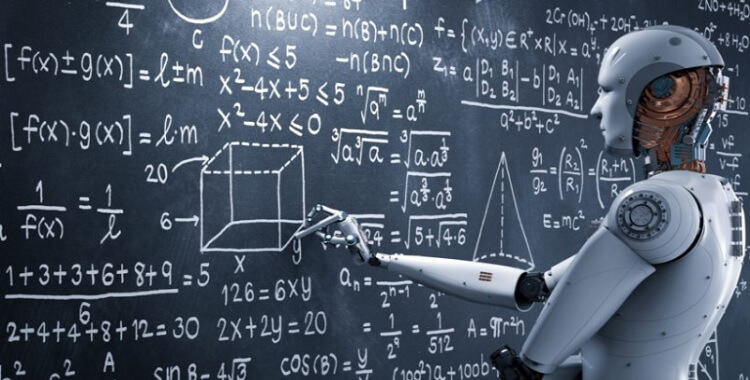Artificial intelligence (AI) has rapidly emerged as a game-changer in the education industry, offering new opportunities to personalize learning, automate administrative tasks, and improve educational outcomes. However, despite its many advantages, AI in education also poses several negative impacts to consider before fully embracing this technology. In this article, we will explore ten negative effects of artificial intelligence in education and its potential implications for students, teachers, and education in general.
The Dark Side of AI: 10 Negative Effects of Artificial Intelligence in Education
1. Foster Lack of Creativity and Innovation
Integrating AI into education can lead to a possible lack of creativity among students. Machine learning algorithms help to optimize efficiency, accuracy, and predictability. While these are crucial aspects of learning, they may hinder creativity, as AI-based systems are less likely to encourage students to think outside the box or engage in creative problem-solving. Students may limit their ability to come up with innovative and original ideas. That may ultimately hamper their future success, as creativity is one of the valuable assets in many professions.
2. Reinforce Existing Biases
One of the negative impacts of AI in education is that it may reinforce existing biases. Machine learning algorithms rely on vast amounts of data to identify patterns and make predictions, and if the data is biased, then the AI will be too. For example, an AI system used to grade essays may have been trained on a dataset that underrepresents a specific demographic, leading to unfair grading. That can result in a lack of diversity and inclusivity in education and may perpetuate existing inequalities.
3. Replace Human Interaction
Another disadvantage of AI in education is that it may replace human interaction. While AI-based systems can provide personalized learning experiences and automated feedback, they may also reduce human interaction between students and teachers. That can be detrimental to social and emotional learning and the development of interpersonal skills.
Read Also:
Top 10 International Schools In Morocco
As a parent, choosing the right school for your kids is one of the most important decisions to make. Nowadays, there are so many schools... Continue Reading →

4. Lead to Over-Reliance on Technology
AI in education may also lead to over-reliance on technology. While technology has many benefits, overreliance on it can hinder critical thinking and problem-solving skills. Students may become too dependent on technology to provide answers and solutions rather than using their critical thinking skills.
5. Result in Standardization of Learning
The standardization of learning is another negative impact of AI in education. AI systems rely on a uniform and standardized approach to education, which can be problematic for students with different learning styles or unique needs. This one-size-fits-all approach may not cater to individual learning preferences, hindering their academic performance. For instance, some students may thrive on hands-on experiences, while others may learn best through visual aids or group discussions. By neglecting these variations in learning styles, AI systems may not be able to deliver personalized learning experiences that meet the unique needs of each student.
6. Lack of Empathy and Emotional Intelligence
The lack of empathy and emotional intelligence is another potential drawback of AI in education. Although AI-based systems can provide personalized learning experiences and automated feedback, they may not be able to offer the same level of emotional support and understanding as human teachers. It can be particularly hard for students experiencing emotional challenges or needing additional assistance. AI systems may not be able to recognize or respond appropriately to emotional cues. It cannot provide the level of encouragement and support that human teachers can offer. That may hinder students’ ability to develop emotional intelligence and social skills, which are essential for their personal growth and future success.
7. May Be Vulnerable to Hacking and Cybersecurity Risks
AI in education may also be vulnerable to hacking and cybersecurity risks. As artificial intelligence and teaching become more sophisticated and interconnected, they become more susceptible to cyber-attacks. That can compromise the student data and the accuracy and reliability of academic assessments. With the increasing use of AI in education, it is crucial to ensure that the systems are secure and protected against cyber threats. Otherwise, the consequences could be severe, with student’s personal information and academic progress being compromised or manipulated.
Read Also:
Top 5 Universities In Namibia For International Students
Needless to say that Namibia is a fascinating country, a tourist hub, and an ideal destination for international students. It has approximately 25 universities across... Continue Reading →

8. Job Losses: AI May Disrupt the Labor Market for Educators
Another potential negative impact of AI in education is that it may disrupt the labor market for educators. AI-based systems can automate administrative tasks, grade assignments, and even provide tutoring. Therefore, it may potentially be replacing some of the functions traditionally performed by human teachers. It can result in job losses and a shift in the types of skills and expertise required in the education industry. Moreover, it can even harm the quality of education that students receive. As a result, it is crucial to find a balance between the benefits of AI in education and the importance of maintaining a robust and effective workforce of human teachers.
9. Privacy
AI requires access to large amounts of data to function correctly, which raises privacy concerns. With the increasing use of AI in education, it is essential to ensure that student data is adequately protected and that privacy is maintained. Without proper security measures, using AI in education could lead to the unauthorized disclosure of confidential information, putting students at risk. Therefore, it is essential to implement appropriate security measures to safeguard students’ data. Also, to maintain privacy, and ensure that the use of AI in education does not compromise the security and confidentiality of sensitive information.
10. Cost and Accessibility
Using AI technology in education can be costly, which may limit access for some schools and students. That creates a digital divide, where only a few students can benefit from AI technology. Moreover, maintenance and updates to the technology can also be expensive. This makes it difficult for some schools to keep up with the latest AI advancements. As a result, schools that cannot afford the latest AI technologies may fall behind in providing quality education to their students, perpetuating the digital divide.
Despite its potential to revolutionize education, it is essential to acknowledge the negative effects of artificial intelligence in education. From hindering creativity and critical thinking to raising privacy concerns and potentially causing job losses, using AI technology in education requires careful consideration. As we continue to integrate AI into our educational systems, we must address these concerns and work to mitigate their adverse effects.
Discover more on AFRIKTA:
International Community School of Abidjan
In a safe and compassionate atmosphere, the International Community School of Abidjan (ICSA) educates over 500 students aged 4 to 18 from over 60 different... See Full Profile →

Malvern College Egypt
Malvern College Egypt is a British international school in Cairo, Egypt, located on the B2-B3 South Ring Road. It is run in collaboration between Malvern... See Full Profile →

Baobab College
Welcome to Baobab College. Located in a lovely green campus in Lusaka, Zambia, Baobab College provides a world-class education in a first-class facility. Baobab International... See Full Profile →

American School of Yaounde
American School of Yaounde (ASOY) is a non-sectarian, independent, coeducational school that offers a rigorous US-style education as well as the IB Diploma Program (DP)... See Full Profile →


